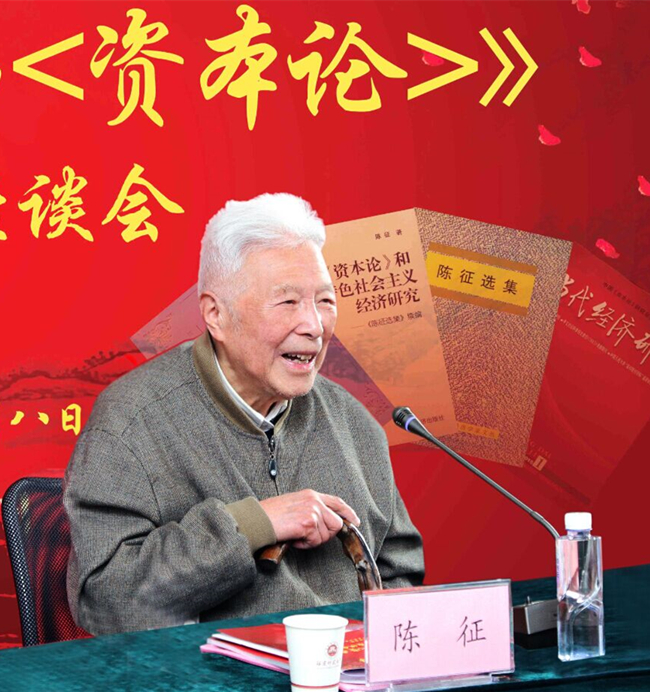
On July 18, 2018, a piece of good news from Berlin, Germany, said that Prof. Chen Zheng, the former president of FNU (see picture, from the Xinhua News Agency) won the “Marxian Economics Award” on the 13th forum of the World Association for Political Economy. At that time, Prof. Chen, born in 1928, was already 90 years old.
“I switched to Marxism in my twenties and without textbooks or references, I had to teach myself and compile in person.” When talking of his academic achievements, Prof. Chen is very humble.
In 1949, at the age of 21, Prof. Chen changed his academic direction from studying Chinese literature to teaching and studying Principles of Marxist Political Economy. In the late 1970s, Prof. Chen, who taught in Fujian Provincial Party School back then, encountered a new issue. With the restoration of the college entrance examination and the development of social economy, the whole community longed for studying Das Kapital of Marx. However, the Das Kapital is so abstruse for them to understand. “We had neither textbooks nor reference materials for teaching Das Kapital.” Prof. Chen recalled.
What to do? Prof. Chen taught himself while giving lectures, and collated his lecture notes for other teachers’ reference in Party School. Later, after three or four amendments, these notes became Prof. Chen’s academic work Commentary on Das Kapital.
The five volumes of Commentary on Das Kapital, were published from 1978 to 1982 in succession with 1.44 million Chinese characters in total. It is the first work in China that systematically explains three volumes of Das Kapital, which fills the gap in Das Kapital studies.
The academic circles speak highly of this set of books: “It is timely and satisfies our curiosity!” At that time, China, in the early stage of reform and opening-up, was faced with many confusions in economy and other fields. Therefore, it is necessary for Chinese to find experiences that can be drawn on in classic works, like Das Kapital. Prof. Chen’s Commentary on Das Kapital, which is used widely in China as textbooks, influenced generations of students.
In 1988, Prof. Chen retired, but he did not stop pursuing his academic career. “I was even more immersed in studying Marxist political economics after my retirement, following closely modern economy, especially the most cutting-edge information about technologies.” In 2005, Prof. Chen’s research bore new fruit. In his work On Application and Development of Labour and Labour Value Theory, he creatively put forward a new term “modern scientific labour”, and established the theory of modern scientific labour, which is a new development of labour value theory in Marxist political economics in the new era.
Studying for several decades, Prof. Chen illuminates the road of studying economic classics for generations of economists, leading discipline construction and intensive study of economics in China.
(Translated by Li Yanmei /Reviewed by Chen Fang)
